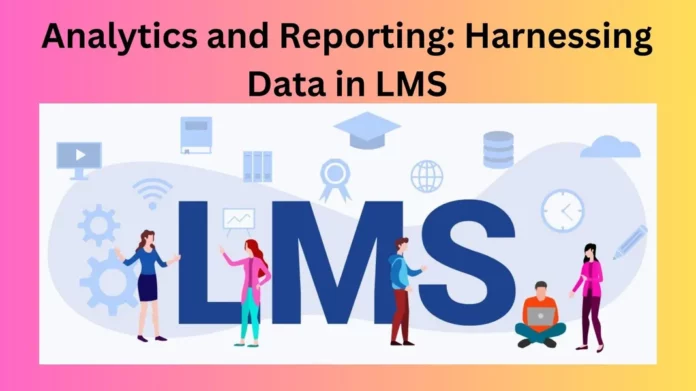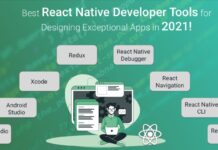In today’s fast-paced digital world, data is the new gold, and Learning Management Systems (LMS) are no exception to this rule. Analytics and reporting in LMS have become invaluable tools, providing educators and administrators with the insights needed to enhance the learning experience. In this article, we’ll delve into the world of LMS analytics and reporting, exploring the benefits, strategies, and best practices to make the most out of your data-driven educational journey.
The Power of LMS Analytics
Unlocking Student Success
LMS analytics offer a profound insight into student performance, shedding light on what works and what needs improvement. By harnessing data, educators can identify struggling students, assess their learning habits, and tailor interventions to enhance their learning experience. These insights are pivotal in helping students reach their full potential.
Data-Driven Curriculum Design
Customizing Content for Optimal Learning
LMS analytics enable educators to track which learning materials are most effective. This information can be used to modify or create new content that resonates with students, making learning more engaging and productive. With data-driven curriculum design, educators can adapt to students’ needs, keeping them motivated and excited about learning.
Improving Instructor Performance
Empowering Educators with Insights
Analytics also benefit educators. They can evaluate their teaching methods, identify areas for improvement, and adjust their strategies accordingly. The ability to monitor student engagement, participation, and progress provides educators with a roadmap to optimize their teaching and enhance the overall learning experience.
Real-Time Monitoring
Staying in the Know
One of the exceptional benefits of LMS analytics is real-time monitoring. Educators can track student activity as it happens, making it easier to intervene when a student needs assistance. This ensures that no student is left behind and that instructors can offer timely support.
Strategies for Effective LMS Analytics
Gathering the Right Data
To harness the power of LMS analytics, it’s essential to collect the right data. This includes data on student performance, engagement, assessment results, and even course completion rates. The key is to gather data that is relevant to your educational objectives.
Data Analysis Tools
Choosing the Right Tools
Selecting the appropriate data analysis tools is critical. LMS platforms often come with built-in analytics features, but some educators prefer to use third-party tools for a deeper dive into their data. Whichever tool you choose, it should provide user-friendly dashboards and customizable reports for easy interpretation.
Data Privacy and Security
Protecting Sensitive Information
With great data comes great responsibility. It’s essential to ensure that the data collected is securely stored and that sensitive student information is protected. Compliance with data privacy regulations, like GDPR or FERPA, is vital to maintain trust and safeguard student privacy.
Training and Professional Development
Building Data Literacy
To effectively use LMS analytics, educators need training and professional development. This ensures they can make the most of the data at their disposal, using it to improve their teaching and student outcomes.
Maximizing LMS Reporting
Creating Informative Dashboards
LMS reporting should focus on creating informative and visually appealing dashboards. These dashboards provide a quick snapshot of student performance, making it easier for educators to identify trends and areas that need attention.
Regular Data Review
Frequent Check-Ins
Regularly reviewing the data is crucial. A consistent approach to data analysis and reporting allows educators and administrators to track long-term trends and make data-driven decisions.
Feedback Loops
Encouraging Student and Educator Feedback
To improve the learning experience, feedback loops are essential. By allowing students to provide feedback on the course material, educators can make timely adjustments. Likewise, educators can give feedback to students about their performance and participation.
Benchmarking and Comparisons
Setting Standards for Success
LMS reporting allows institutions to benchmark their performance against industry standards or other similar institutions. By making these comparisons, educators can set goals for improvement and identify areas where they excel.
Conclusion
In today’s educational landscape, analytics and reporting are indispensable tools for harnessing the power of data in Learning Management Systems. They empower educators and administrators to improve student outcomes, enhance teaching methods, and create a more engaging learning experience. As we continue to navigate the digital era, embracing data-driven education is not an option; it’s a necessity.
FAQs
Q1: What data should I focus on in LMS analytics?
A1: The essential data to focus on in LMS analytics includes student performance, engagement, assessment results, and course completion rates. These metrics provide valuable insights into the learning process.
Q2: Are there privacy concerns with LMS analytics?
A2: Yes, data privacy is a significant concern. It’s crucial to ensure that sensitive student information is securely stored and that you comply with relevant data privacy regulations, such as GDPR or FERPA.
Q3: How can LMS analytics benefit students?
A3: LMS analytics can benefit students by enabling educators to identify struggling students and customize learning materials to suit their needs, ultimately enhancing the overall learning experience.
Q4: Are there free tools for LMS analytics?
A4: Some LMS platforms offer built-in analytics features, while others may require third-party tools. Many free and paid tools are available for data analysis, depending on your specific needs.
Q5: What is the role of feedback loops in LMS analytics?
A5: Feedback loops in LMS analytics facilitate communication between educators and students. Students can provide feedback on course material, and educators can offer performance feedback, creating a dynamic, responsive learning environment.















